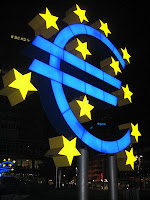 It is primarily traded through banks, brokers, dealers, financial institutions and private individuals. Trades are executed through phone and increasingly through the Internet.It is only in the last few years that the smaller investor has been able to gain access to this market. Previously, the large amounts of deposits required precluded the smaller investors. With the advent of the Internet and growing competition it is now easily in the reach of most investors.
It is primarily traded through banks, brokers, dealers, financial institutions and private individuals. Trades are executed through phone and increasingly through the Internet.It is only in the last few years that the smaller investor has been able to gain access to this market. Previously, the large amounts of deposits required precluded the smaller investors. With the advent of the Internet and growing competition it is now easily in the reach of most investors. Marketiva MM DOO is a limited liability company incorporated in the Republic of Montenegro with registration number 5-0557722. Because over-the-counter market-making services are not within regulatory framework of the Securities Commission of the Republic of Montenegro (SCMN), Marketiva MM DOO is currently working with legal and compliance firms based in the EU to make its services fully compliant with the Markets in Financial Instruments Directive (MiFID), which is a EU law that provides harmonized regulation for financial services across the EU member states. In addition, Marketiva MM DOO is working on an autonomous web site that will present comprehensive self-regulatory information, and which will allow our clients to continuously monitor financial condition of Marketiva MM DOO and be able to submit complaints. ...Client funds held with Marketiva MM DOO are maintained in separate bank accounts at CKB AD, which is the largest commercial bank in Montenegro. Our over-the-counter market-making services and related online support are continuously available .

















